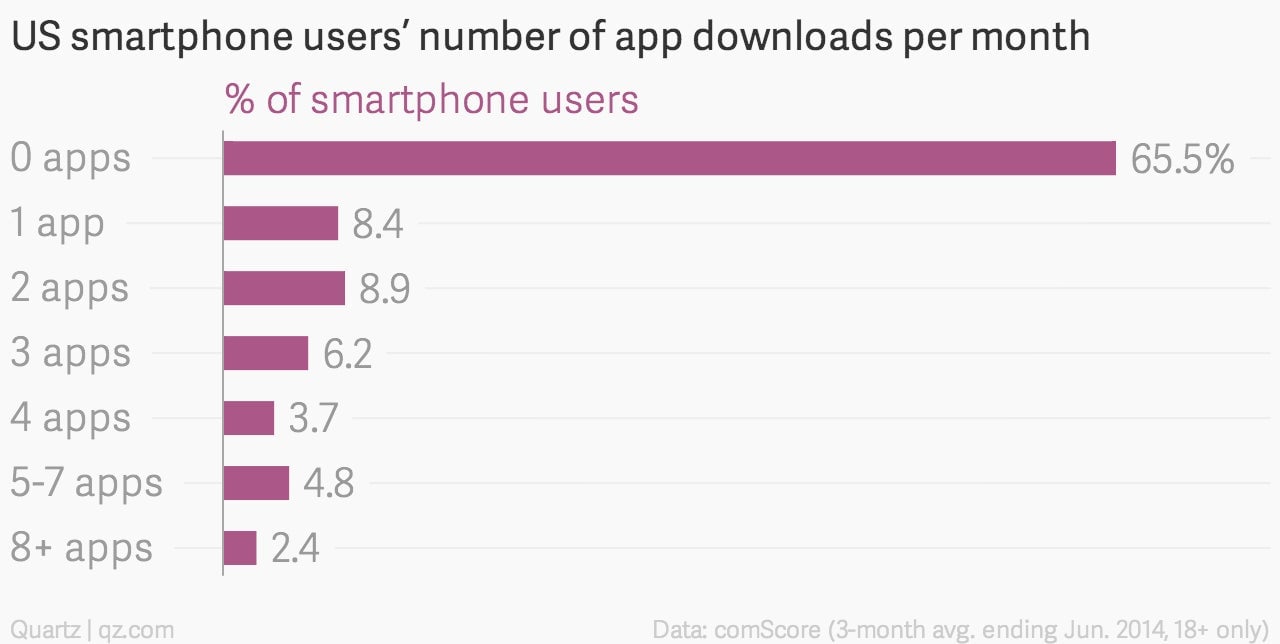Most smartphone users download zero apps per month
Mobile apps have skyrocketed in popularity and utility since Apple introduced the iPhone App Store in the summer of 2008. Apps now represent 52% of time spent with digital media in the US, according to comScore, up from 40% in early 2013. Apple boasted 75 billion all-time App Store downloads at its developers conference in June, and followed up by declaring July the best month ever for App Store revenue, with a record number of people downloading apps.


Mobile apps have skyrocketed in popularity and utility since Apple introduced the iPhone App Store in the summer of 2008. Apps now represent 52% of time spent with digital media in the US, according to comScore, up from 40% in early 2013. Apple boasted 75 billion all-time App Store downloads at its developers conference in June, and followed up by declaring July the best month ever for App Store revenue, with a record number of people downloading apps.
Yet most US smartphone owners download zero apps in a typical month, according to comScore’s new mobile app report.

Only about one-third of smartphone owners download any apps in an average month, with the bulk of those downloading one to three apps. The top 7% of smartphone owners account for “nearly half of all download activity in a given month,” comScore reports.
Why is this? It’s not that apps aren’t useful—more than half of US smartphone users accessed apps every single day, according to comScore. And it can’t be that they’re too expensive: Most apps are free, and app prices have notoriously been in a race to the bottom since the App Store debuted. So what’s the deal?
One possible explanation is that people just don’t need that many apps, and the apps people already have are more than suitable for most functions. Almost all smartphone owners use apps, and a “staggering 42% of all app time spent on smartphones occurs on the individual’s single most used app,” comScore reports. New apps come and go, especially games, but perhaps breakthrough apps will be increasingly rare. A look at the top 25 most-used apps reflects mostly mature companies, including Facebook, Google, Pandora, and Yahoo.
Another likely reason is that it’s still not easy enough to find and download new apps. Apple’s App Store has received (deserved) criticism for its lousy discovery features, with users relying heavily on top-25 lists, a bad search engine, and few editorial features. This mostly helps the rich get richer, and makes it harder for clever new apps to get noticed. Apple is right to be proud of its app program—it has been one of the most important inventions in the history of software, and Google has done a decent job copying. But there is certainly room for improvement.